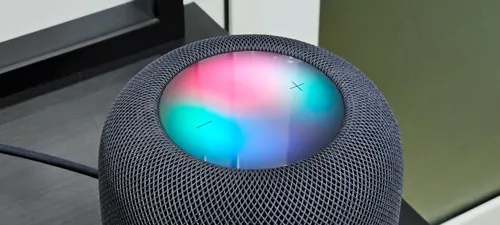Apple affirme que les données de Siri n'ont « jamais été utilisées » pour des profils de marketing ou « vendues à quiconque pour tout usage ».

Last week, Apple agreed to pay $95 million to settle a lawsuit that accused an "illegal and intentional" recording of interactions with Siri.
The sale of Apple has sparked a wave of conspiracy theories suggesting that Siri listens to your words for targeted advertisements, but the company claims these statements are completely unfounded.
Controversy over Siri's Privacy
In refreshing memories, the trial revealed a Guardian report from 2019 revealing independent companies used by Apple to "evaluate" interactions with Siri. The concerned party claimed that these independent companies regularly heard private user interactions as part of their work to ensure the "quality control" of Siri.
At the time, Apple quickly responded to the accusations by stating that "less than 1% of daily Siri activations" were used for "evaluation" and that these activations were generally very short (about "a few seconds"). Interactions were also subject to a "strict Apple confidentiality agreement" and were not linked to a user's Apple ID.
Apple has recently announced several modifications to Siri privacy protection measures in an Apple Newsroom statement. The major change was that, by default, Apple would no longer retain recordings of interactions with Siri. Instead, users could choose to opt for Siri assistance to improve by "learning from audio samples of their requests". Apple also indicated that only Apple employees would be authorized to listen to audio samples of Siri interactions, not third-party providers - and any determination of a "Siri accidental trigger" would be quickly deleted.
That's why the press headlines suggesting this legal proceeding is proof that your phone "always listens to your words" are simply conspiracy theories without foundation. In reality, it is literally impossible for your interactions with Siri to be used for targeted advertisements with the privacy protections Apple has implemented.
However, this should not excuse Apple's reactive rather than proactive approach to the situation that emerged for the first time in 2019. Apple should have had stricter privacy protection measures in place before this, and it shouldn't have had to wait for an anonymous witness to react. The system should have been opt-in from the start. However, Apple has continued to strengthen Siri privacy protections since then.
Follow Chance: Themes, Bluesky, Instagram and Mastodon.
Catégories
Derniers articles
- <p>Examen du clavier mécanique Satechi Keyboard SM3 : silencieux et parfait pour la productivité</p>
- This old phone became a fire hazard right before my eyes.
- 10 façons dont l’invitation d’Apple diffère du Calendrier Apple
- <p>Apple au travail : 2025 sera-t-il l’année où Apple lancera un concurrent de Google Workspace ?</p>
- Apple improbable d'organiser un événement spécial pour annoncer l'iPhone SE 4.
- Indices et solutions du jeu « Connections » du NYT pour le 8 février (#608)" Let me know if you'd like me to translate this into another language! 😊
- Support for Ubuntu 20.04 LTS is ending.
- Avez-vous une liste de lecture ? Laissez l'IA vous lire.
- Voici mon lecteur Blu-ray du Graal.
- <p>De nouveaux produits Apple seront lancés la semaine prochaine : voici ce qui arrive.</p>
Derniers tags
- rétroéclairage
- compatible
- silencieux
- recyclage
- danger
- gonflées
- Batteries lithium-ion
- Workspace
- Communiqué
- Annonce



